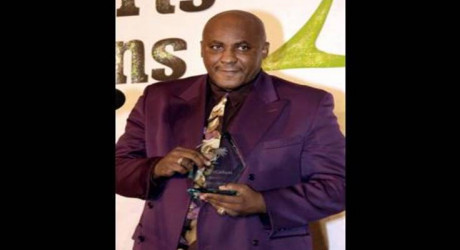The four former members of the Public Service Commission
(PSC) who took the Prime Minister to court following their controversial
dismissal a year ago are being chided for their decision not to proceed with
the case.
Attorney at Law and Human Rights Activist Hilaire Sobers said the former members gave up too easily.
Mr. Sobers and other critics said the constitutional nature of the matter involving their dismissal warranted a full hearing in court.
He expressed disappointment at the out-of-court agreement which the former PSC members claim was in the country's best interest.
"Unfortunately the parties are treating this as some private litigation, almost like a breach of contract, some kind of tort in which no one else has an interest. I think it sets the wrong precedent. What this settlement does is license this and future governments to do as they please with constitution bodies," said Mr. Sobers.
When contacted on Monday night two of the former PSC members Daisy Coke and Mike Fennel declined to comment on the matter.
Lawyers for both sides announced on Monday that they had arrived at a settlement over the weekend, putting an end to the case which raised questions as to whether the Prime Minister had breached the Constitution.
Mrs. Coke, Mr. Fennel along with Edwin Jones and Paula Findlay filed a lawsuit in January after they were dismissed by the Prime Minister who cited misconduct.
And one of the former members of the PSC who decided not to join his colleagues in suing the Prime Minister said he is pleased with the outcome.
Dr. Alfred Sangster was sacked along with the other four members a year ago.
However, he broke ranks with his colleagues in January when he disclosed in an RJR News interview that he felt it was improper to sue the Head of the Government.
Reacting to Monday's announcement of an out court settlement, Dr. Sangster disclosed that the parties did the right thing by not engaging in a court battle.
"Basically a compromise has been reached. It sends an important signal to this country that there is potential for conflict to be resolved without ending up in court. But eventually the resolution of conflict leads essentially to the good of both sides. I think everyone has won in this case," said Dr. Sangster.
Attorney at Law and Human Rights Activist Hilaire Sobers said the former members gave up too easily.
Mr. Sobers and other critics said the constitutional nature of the matter involving their dismissal warranted a full hearing in court.
He expressed disappointment at the out-of-court agreement which the former PSC members claim was in the country's best interest.
"Unfortunately the parties are treating this as some private litigation, almost like a breach of contract, some kind of tort in which no one else has an interest. I think it sets the wrong precedent. What this settlement does is license this and future governments to do as they please with constitution bodies," said Mr. Sobers.
When contacted on Monday night two of the former PSC members Daisy Coke and Mike Fennel declined to comment on the matter.
Lawyers for both sides announced on Monday that they had arrived at a settlement over the weekend, putting an end to the case which raised questions as to whether the Prime Minister had breached the Constitution.
Mrs. Coke, Mr. Fennel along with Edwin Jones and Paula Findlay filed a lawsuit in January after they were dismissed by the Prime Minister who cited misconduct.
And one of the former members of the PSC who decided not to join his colleagues in suing the Prime Minister said he is pleased with the outcome.
Dr. Alfred Sangster was sacked along with the other four members a year ago.
However, he broke ranks with his colleagues in January when he disclosed in an RJR News interview that he felt it was improper to sue the Head of the Government.
Reacting to Monday's announcement of an out court settlement, Dr. Sangster disclosed that the parties did the right thing by not engaging in a court battle.
"Basically a compromise has been reached. It sends an important signal to this country that there is potential for conflict to be resolved without ending up in court. But eventually the resolution of conflict leads essentially to the good of both sides. I think everyone has won in this case," said Dr. Sangster.









 All feeds
All feeds







